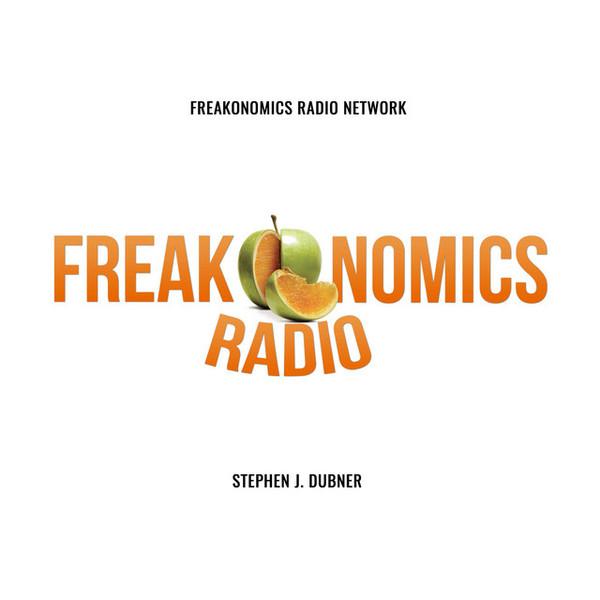489. Is “Toxic Positivity” a Thing?
Curated from: Freakonomics Radio
Ideas, facts & insights covering these topics:
10 ideas
·2.55K reads
25
2
Explore the World's Best Ideas
Join today and uncover 100+ curated journeys from 50+ topics. Unlock access to our mobile app with extensive features.
History is changed for the better by the hypomanic
Hypomania is an extreme form of happiness. When it reaches a pathological level of happiness, you're not only feeling on top of the world, but therapists also think it's dysfunctional.
Hypomanic means someone has a complete lack of impulse control. You talk without stopping in a way that people can't follow you. You do not need to sleep, so you don't. You are also taking high risks.
21
394 reads
Center of gravity to mood states
Most people have a set range for their resting state of happiness, to which they eventually return regardless of what life events they encounter.
However, the centre of gravity can shift.
20
352 reads
Optimism as the ultimate pursuit
We all know what it's like to feel bad, and we all want to feel good more than we feel bad.
For many philosophers and individuals in general, optimism/joy is the ultimate pursuit. However, being always positive does not mean being blind to real concerns. We can experience positive and negative emotions.
21
296 reads
Unhappiness and happiness are not photo negatives of each other
The correlation between positive and negative emotions is only -0.3, meaning if being happy was the opposite of being unhappy, you would see a correlation of -1. So it suggests that people are fully capable of feeling some happy emotions, some negative feelings and mixed emotions.
Studies found that "neurotic" people have rollercoaster emotions. However, you can have a high mood centre of gravity and hover around there stably.
20
261 reads
Being positive can be exploited
- If you seem too happy, it may be an indication to others that you are low on empathy.
- You may be perceived by others as naive and insensitive to people who are not in a very good mood at the time.
- Dispositional optimistic people tend to be biased to only pay attention to the good sides. But this can be manipulated. “Hey, they’re looking over here. While they’re looking at the glass being half-full, we can exploit this blindness that they have. I’m going to sell them a horse.”
20
240 reads
People get happier on average as they get older
Well into older adulthood, adults are happier than they were when they were younger. Research suggests that's because older adults tend to selectively look at the pretty picture and ignore the ugly picture.
This attentional engine that filters out reality and pushes feelings around attention is the gatekeeper for everything.
However, we don't want to ignore inequality, death, sadness, and loss even if we could be 10 out of 10 on happiness because there's something other than happiness, like character.
21
204 reads
Happiness is a privilege
You do not have to be rich to control where you pay attention.
The optimists of the world tend not to be hanging out on their couches, staring at their half-filled glasses. Instead, they're starting non-profits or becoming teachers. They acknowledge that there are objective disadvantages but look at the good side too.
18
211 reads
The happiest people in the world
A 2013 TIME magazine survey found that 90% of people consider themselves optimists.
- But happiness varies by national culture. For example, Denmark and Finland are considered very happy. In 2015, the least happy country was Togo, but a 2021 report showed that Afghanistan was the least happy country.
- America may be more optimistic because they have a very strong religious belief and a very strong belief in an afterlife. If you want to think about a reason to be optimistic, it would be believing that your ending will be better than now.
19
202 reads
The casual influence of happiness on future outcomes
The causal influence of happiness goes from happiness to doing better at work. When you're doing better at work, it makes you happier.
Yet, die-hard optimists should understand that there may be occasions where you should tone it down a little for the sake of others. Pessimists should maybe jack it up a little bit because it's a free pass toward improving your outcomes.
20
196 reads
Ensure you're not neglecting the bigger picture
If you diagnose yourself as an optimist, you might want to ensure you are at least noticing when the glass is half-full and for whom the glass is half-full, who doesn't have a glass at all, and who has two glasses.
For pessimists, notice your attention. Consider which part of the picture you are obsessively dwelling on.
Yet, both optimists and pessimists would understand the reality of cycles because there are virtuous and vicious cycles: being unhappy, negative and hyper-critical can be a spiral downward. But they can also join virtuous upward spirals.
23
195 reads
IDEAS CURATED BY
Donald Garner's ideas are part of this journey:
Learn more about podcasts with this collection
How to adapt to different speaking situations
How to engage with an audience
How to use body language effectively
Related collections
Similar ideas
20 ideas
10 Lessons From the Smartest Minds In The World | The Knowledge Project 127
The Knowledge Project
23 ideas
Freakonomics Rev Ed
Steven D. Levitt
3 ideas
Talent vs Grit - Mickey Mellen
mickmel.com
Read & Learn
20x Faster
without
deepstash
with
deepstash
with
deepstash
Personalized microlearning
—
100+ Learning Journeys
—
Access to 200,000+ ideas
—
Access to the mobile app
—
Unlimited idea saving
—
—
Unlimited history
—
—
Unlimited listening to ideas
—
—
Downloading & offline access
—
—
Supercharge your mind with one idea per day
Enter your email and spend 1 minute every day to learn something new.
I agree to receive email updates





